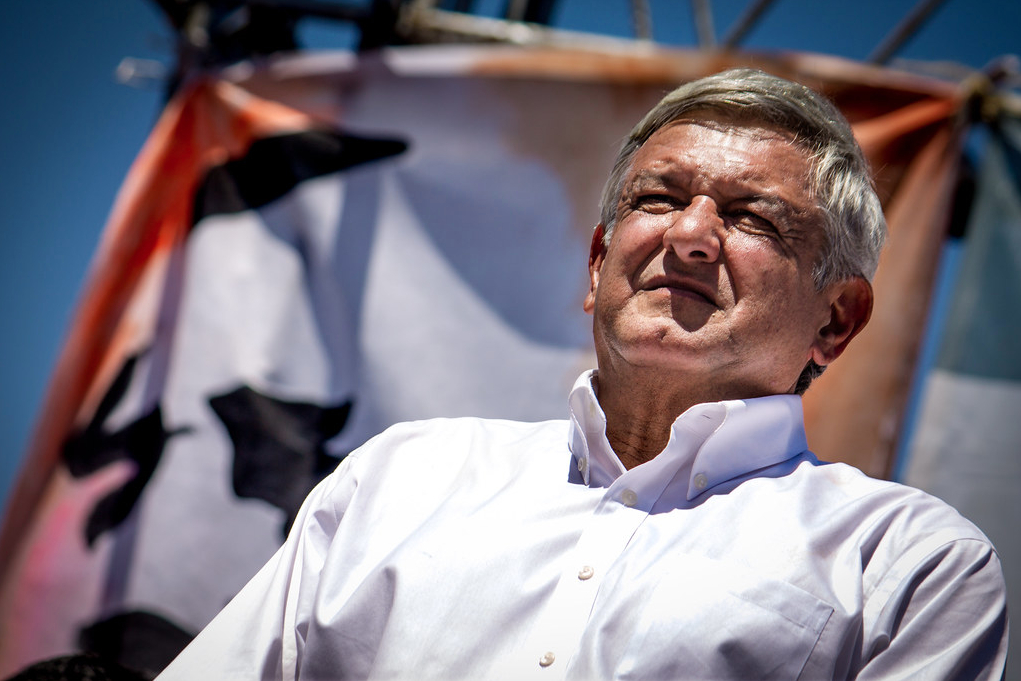Twenty-six months have passed since December 1, 2018, when Andrés Manuel López Obrador (AMLO) took office as President of Mexico and several questions loom. Where is Mexico going? What has been done well and what has not been done during the government of the Fourth Transformation? What can happen in the federal and local elections next June 6th?
López Obrador’s administration presents clear light and dark tones, as well as shades between full light and total darkness. Let’s look at these shades in detail.
AMLO’s successes
AMLO bet his international chips on having good relations with the United States and even chose not to enter into a debate in the face of President Donald Trump’s controversial statements regarding the wall. In mid-2020, the T-MEC came into force, a trade agreement with Canada and the United States that has advantages for the country, since 80% of Mexican exports are destined for its two northern neighbors and it is one of the stakes to help economic recovery.
The beginning of the relationship with Biden has been cautious, because although Mexico has recognized the recent policies that favor the Mexican migrant community, AMLO’s statements set a limit on possible interferences into the security issue.
The fight against corruption is another positive aspect of the current Mexican President’s administration. The blow against huachicoleo -theft fueled by criminal gangs with the complicity of officials of the state-owned oil company, PEMEX- is still being prosecuted and the final outcome is uncertain. But it has fueled public hope that real change would finally come.
Intensive communication management through morning press conferences and periodic management reports installed in public opinion the image of a president with moral authority who informs the population. AMLO has given more than 400 “mornings” and despite the criticism of those who consider the ritual to be demagogic and proselytizing, we can expect that in the medium term it will contribute to revitalize the democratic culture, especially among young people.
The decision of the National Electoral Institute to prohibit the full transmission of the presidential conferences as of April 4 (when the campaign period for the June 3rd election day opens) has rekindled the debate on the form and content of the same.
Disapproved subjects
Among the matters disapproved by the public opinion, the governmental handling of the coronavirus pandemic has aroused more rejection than approval. From the beginning, AMLO downplayed the seriousness of the outbreak by refusing to dictate strong sanitary measures. Infected with COVID-19 at the end of January, it is a question mark as to whether he will reverse his apathy towards the viral emergency.
Hugo Lopez-Gatell, Undersecretary of Prevention and Health Promotion, became the figurehead of the Obrador strategy, enjoying extraordinary popularity in the initial months of the pandemic. But that popularity has been eroding as the death toll has risen and infection levels have brought the hospital system to the brink of collapse.
The coronavirus pandemic revealed the pre-existing difficulties of the Mexican economy. Stagnation was accentuated by a 9% drop in GDP and the net loss of 650,000 formal jobs. This collapse was accompanied by a decrease in public and private investment. The confidence of businessmen and citizens in the future has been recovering discreetly, but still remains below 50 points. The economic year began with uncertainty.
Before the current health emergency, Mexico was facing another pandemic: violence. To solve it, AMLO continued the militaristic path of his predecessors. In addition, under the slogan “scholarship holders yes, hitmen no”, he implemented social policies that have not yet shown clear results. But drug trafficking has structural dimensions that are underestimated by the Mexican government. Hence, his failure. A proof is the case of General Cienfuegos, who was exonerated of the crimes he was accused of without any trial. The decision of the Attorney General’s Office has only increased suspicions about the penetration and influence of criminal gangs within the Mexican state.
Management in the shadows
Now, on some issues AMLO’s administration moved between half-light and half-darkness and has given rise to polarized interpretations without clear hegemonies.
First, the immigration issue. During his electoral campaign, AMLO proposed a humanitarian approach to the migration issue. However, from the beginning of his administration the Ministry of Foreign Affairs took the lead on the issue and worked directly with the Trump administration modifying the form of cooperation. Under pressure from the U.S. government, Mexico abandoned the humanitarian approach and adopted a policy that meant a setback in the State’s obligations to guarantee the human rights of migrants.
In this sense, AMLO’s immigration policy criminalizes and strengthens discrimination against a vulnerable group. But at the same time, this turn Copernican received the support of public opinion that pressured his government to contain the migratory marches.
Secondly, violence against women and girls has been on the rise in recent years. Faced with this situation, women from various sectors and feminist movements have taken to the streets to demonstrate against the increase in femicides, disappearances and macho violence. The President’s response has been ambivalent; he acknowledges the pain of women and the seriousness of the problem but minimizes criticism and evades the attention of it.
Third, citizen consultations have been a recurrent strategy of AMLO’s government that allowed him to lower the cost of decision making in large projects that polarize public opinion, namely: the Mayan Train, new CDMX airport, and the Constellation Brands plant in Baja California. The consultations have been organized from the structure of their party and although they do not have the minimum requirements to be considered democratic exercises, they have worked to legitimize their decisions.
What to expect in the subnational and parliamentary elections next June?
Despite the pandemic health crisis, the economic recession and the increase in violence, the President’s popularity remains very high: 61% according to the poll aggregation site Oráculus. Citizens perceive that the Federal Government does not have the capacity to efficiently face the triple crisis and blame past governments for the poor economic and institutional conditions in which they left the country.
In this context, with a popular leader and the absence of viable alternatives in the opposition, a defeat of the ruling party cannot be easily imagined. Time and the voters will have their say.
*Translation from Spanish by Destiny Harrison-Griffin
Photo by El Pelos Briseño at Foter.com / CC BY-NC-SA













